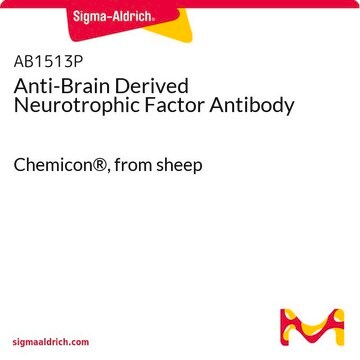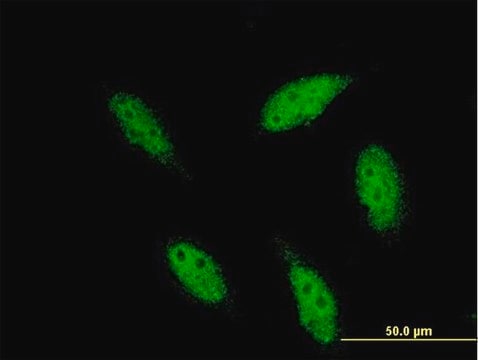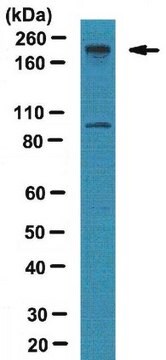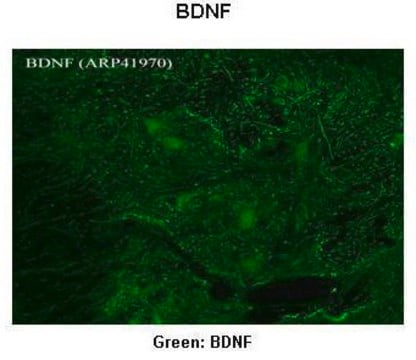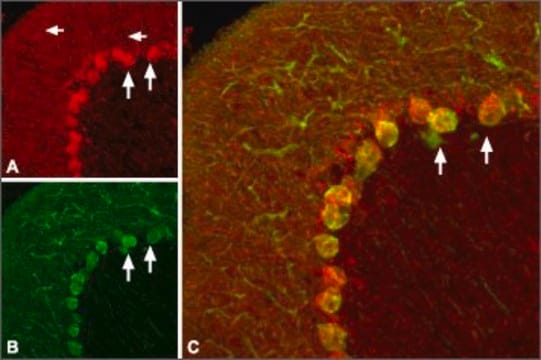B5050
Monoclonal Anti-Brain-derived Neurotrophic Factor antibody produced in mouse
clone 35928.11, purified immunoglobulin, lyophilized powder
Sinónimos:
Anti-BDNF
About This Item
Productos recomendados
biological source
mouse
Quality Level
conjugate
unconjugated
antibody form
purified immunoglobulin
antibody product type
primary antibodies
clone
35928.11, monoclonal
form
lyophilized powder
species reactivity
human
technique(s)
immunohistochemistry (formalin-fixed, paraffin-embedded sections): 8-25 μg/mL using human spinal cord
western blot: 1-2 μg/mL
isotype
IgG1
UniProt accession no.
storage temp.
−20°C
target post-translational modification
unmodified
Gene Information
human ... BDNF(627)
¿Está buscando productos similares? Visita Guía de comparación de productos
General description
Immunogen
Application
Immunofluorescence (1 paper)
Biochem/physiol Actions
Physical form
Preparation Note
Disclaimer
¿No encuentra el producto adecuado?
Pruebe nuestro Herramienta de selección de productos.
Optional
related product
Storage Class
11 - Combustible Solids
wgk_germany
WGK 1
flash_point_f
Not applicable
flash_point_c
Not applicable
Certificados de análisis (COA)
Busque Certificados de análisis (COA) introduciendo el número de lote del producto. Los números de lote se encuentran en la etiqueta del producto después de las palabras «Lot» o «Batch»
¿Ya tiene este producto?
Encuentre la documentación para los productos que ha comprado recientemente en la Biblioteca de documentos.
Nuestro equipo de científicos tiene experiencia en todas las áreas de investigación: Ciencias de la vida, Ciencia de los materiales, Síntesis química, Cromatografía, Analítica y muchas otras.
Póngase en contacto con el Servicio técnico